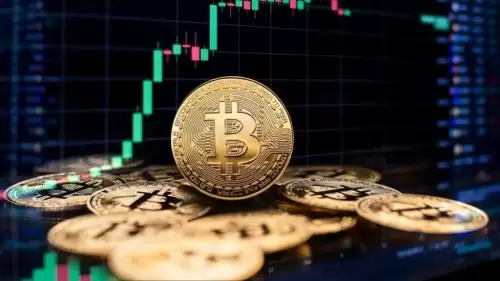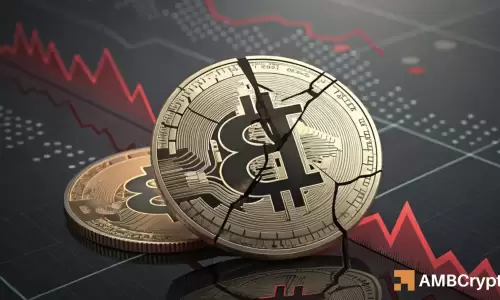 |
|
 |
|
 |
|
 |
|
 |
|
 |
|
 |
|
 |
|
 |
|
 |
|
 |
|
 |
|
 |
|
 |
|
 |
|

When it comes to blockchain applications, DeFi is one of the most prominent. Short for decentralized finance, DeFi has grown exponentially over the last few years, with billions of dollars being spent and invested thus far and more prominence in the mainstream than ever before.
Despite all of this, it is clear that the DeFi space is ruled by Ethereum and Ethereum killer tokens, leaving Bitcoin mostly on the sidelines. But some enthusiasts speculate that we could see the rise of Bitcoin in DeFi spaces in the next few years. But is this possible?
An Introduction to DeFi
Decentralized finance, at its core, essentially involves blockchain technology and its by-products being used to deliver financial services to consumers. Typically, this is done with a view to more access and convenience that you would enjoy in the mainstream financial world.
An example of a DeFi service would be insurance. Typically, you would have to engage with a mainstream insurance broker to get coverage, and this isn’t available to everyone. With DeFi, you can essentially receive insurance coverage online, and this is backed up by smart contracts. Businesses and individuals who might be denied or face slow service with mainstream insurance brokers can turn to DeFi platforms for their needs.
The same occurs with token swapping, lotteries, and so on. We’ve also heard of decentralized exchanges, which essentially see DeFi platforms swapping tokens in the way a centralized one would. Another example would be casinos. Online casinos have been prominent for several years now, but blockchain-based casinos allow users to enjoy these services without setting up accounts. Many of these platforms accept major tokens like Bitcoin, and as Andjelija Blagojevic explains, Bitcoin friendly platforms are becoming more of the norm in the sector.
Decentralized finance first took off in the late 2010s and especially saw growth during the COVID-19 pandemic. Some of the biggest DeFi platforms include Sushi Swap and UniSwap, and DeFi services have become almost as vital as centralized crypto services. Take the rise of decentralized exchanges, for example. Major exchanges like Binance have gone as far as launching their own DEXs because the demand for them has been so high.
Benefits Of DeFi
It is worth noting that DeFi offers several benefits to consumers, which is why it has remained so popular. First, a majority of DeFi platforms are non-custodial in nature. As the name would imply, its decentralized nature means that consumers can conduct transactions without giving up ownership of their tokens. If you swap tokens using a DeFi platform, you only need to connect your wallet to it and not necessarily transfer control over your tokens. Then there is the privacy factor. The fact that wallets are connected and accounts are not set up means that virtually anyone can access DeFi services without having to give up their sensitive information, which is often a concern for consumers.
Then there’s the matter of efficiency. Most DeFi platforms are governed by smart contracts, which means that decision-making and transaction processing aren’t at the whims of humans. If you take out a DeFi-backed insurance policy in the case of a natural disaster, your funds are automatically transferred to you once the smart contracts confirm that the disaster has happened. This means no waiting months for your claim to be processed, and instead, waiting merely minutes. Finally, DeFi platforms offer a lot of access to businesses and people that otherwise would be shut out of the mainstream financial system. This is especially true for those seeking loans and insurance.
The Blockchain Matter
The DeFi space is worth billions of dollars, and as we’ve explained, it is becoming increasingly popular within and outside of blockchain circles. It is also worth noting that a majority of DeFi platforms are backed by Ethereum, Solana, and other such chains. As much as Bitcoin remains the most popular cryptocurrency in the planet, it is largely unrepresented in the DeFi space.
According to Statista, Ethereum, Binance Smart Chain and Tron continued to dominate in terms of the biggest cryptocurrency DeFi protocols in 2023.
Image Credit: Statista
This begs the question of whether the blockchain behind the biggest crypto in the world can find its place in DeFi. To answer this, a few things must be considered.
Speed
Ultimately, Bitcoin as a token succeeds because of its popularity and value to consumers. However, as a blockchain, Bitcoin is not exactly the most efficient. DeFi is working towards mainstream use and acceptance, and for this to happen, it will process millions of transactions a day. This means that DeFi platforms have to be built on blockchains that are known for their speed, which does not include Bitcoin. For comparison, Ethereum currently processes up to 174 transactions per second, and the most recent announcement from the Ethereum Foundation aims to push the speed to over a hundred thousand in the future. Bitcoin, on the other hand, can process up to 7 transactions per second, and it is not unheard of for one transaction to take up to an hour to be processed.
Needless to say, while Bitcoin might be valuable, its blockchain simply isn’t designed
免责声明:info@kdj.com
所提供的信息并非交易建议。根据本文提供的信息进行的任何投资,kdj.com不承担任何责任。加密货币具有高波动性,强烈建议您深入研究后,谨慎投资!
如您认为本网站上使用的内容侵犯了您的版权,请立即联系我们(info@kdj.com),我们将及时删除。
-

-

-

-

-

-

- UNISWAP价格预测:看涨逆转在地平线上?
- 2025-08-05 07:10:59
- UNISWAP(UNI)是否准备好看好逆转?最近的市场分析表明潜在的上升性,但是哪些因素驱动了这种乐观的前景?
-

- 比特币,以太坊,Altcoin Rally:这是最大的吗?
- 2025-08-05 07:01:56
- 加密货币市场正在加热,以太坊领导了这一指控。这是主要的Altcoin集会的开始吗?让我们研究最新的趋势和见解。
-

-

- 比特币持有人准备在看跌信号的市场出口
- 2025-08-05 07:00:39
- 长期比特币持有者显示出市场退出的迹象,作为关键指标闪光灯信号,表明尽管价格提高,但仍有可能进行更正。





























































